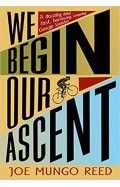Rumi Comes to America: How the Poet of Mystical Love Arrived on our Shores
By: Bruce Miller
-
Rs 2,290.75
- Rs 2,695.00
- 15%
You save Rs 404.25.
Due to constant currency fluctuation, prices are subject to change with or without notice.
In 1976, few people had heard of Jelaluddin Rumi. Yet, in a stellar leap that no one could have predicted, this 13th-century Islamic theologian would soon become America’s best-selling poet.
From the author’s first-hand storytelling, interviews, recorded talks, and archival photographs, Rumi Comes to America describes the generational yearning, fortuitous events, spiritual mishaps, and everyday miracles that propelled Rumi’s ancient mystical tradition to take root in America.
The story focuses on a group of young seekers, inspired by author Reshad Feild’s spiritual journey to Turkey, who invite Süleyman Loras Dede, a sheikh of the Whirling Dervishes who spent most of his life cooking for the poor, to their modest duplex in Los Angeles.
Süleyman Dede was eighteen years old when he entered the dervish monastery in Konya, Turkey. But soon after, in 1926, all dervish activities, including the path of Rumi, were banned by Kemal Atatürk in his quest to create a secular, modern Turkey.
With dervish life underground, Dede’s spiritual mastery would go mostly unnoticed in Turkey until age 74 when he set foot in Los Angeles – his culminating mission to bring Rumi to America.
The intimate recollections that form the core of this story reveal how today’s Rumi phenomenon began as a series of fluke events that took root in the hearts of young people dedicated to Rumi’s timeless message of mystical love. ---
“This book tells the story of one of the most important moments in America’s recent religious and spiritual history using accounts of those involved and new translations of audio recordings from the time. Written with honesty, compassion, and understanding, it beautifully conveys the feeling of the place and period.” Mark Sedgwick, Department of the Study of Religion, Aarhus University, and author of Western Sufism: From the Abbasids to the New Age (Oxford University Press)
“Bruce, thank you for doing this good work!” Coleman Barks, The Essential Rumi
In 1976, few people had heard of Jelaluddin Rumi. Yet, in a stellar leap that no one could have predicted, this 13th-century Islamic theologian would soon become America’s best-selling poet.
From the author’s first-hand storytelling, interviews, recorded talks, and archival photographs, Rumi Comes to America describes the generational yearning, fortuitous events, spiritual mishaps, and everyday miracles that propelled Rumi’s ancient mystical tradition to take root in America.
The story focuses on a group of young seekers, inspired by author Reshad Feild’s spiritual journey to Turkey, who invite Süleyman Loras Dede, a sheikh of the Whirling Dervishes who spent most of his life cooking for the poor, to their modest duplex in Los Angeles.
Süleyman Dede was eighteen years old when he entered the dervish monastery in Konya, Turkey. But soon after, in 1926, all dervish activities, including the path of Rumi, were banned by Kemal Atatürk in his quest to create a secular, modern Turkey.
With dervish life underground, Dede’s spiritual mastery would go mostly unnoticed in Turkey until age 74 when he set foot in Los Angeles – his culminating mission to bring Rumi to America.
The intimate recollections that form the core of this story reveal how today’s Rumi phenomenon began as a series of fluke events that took root in the hearts of young people dedicated to Rumi’s timeless message of mystical love. ---
“This book tells the story of one of the most important moments in America’s recent religious and spiritual history using accounts of those involved and new translations of audio recordings from the time. Written with honesty, compassion, and understanding, it beautifully conveys the feeling of the place and period.” Mark Sedgwick, Department of the Study of Religion, Aarhus University, and author of Western Sufism: From the Abbasids to the New Age (Oxford University Press)
“Bruce, thank you for doing this good work!” Coleman Barks, The Essential Rumi
Rumi Comes to America: How the Poet of Mystical Love Arrived on our Shores
By: Bruce Miller
Rs 2,290.75 Rs 2,695.00 Ex Tax :Rs 2,290.75
Zubin Mehta: A Musical Journey (An Authorized Biography)
By: VOID - Bakhtiar K. Dadabhoy
Rs 892.50 Rs 1,050.00 Ex Tax :Rs 892.50
Cheen Pur Aman Tarqi Ki Nai Sharahin
By: Mohammad Aslam Janjoa
Rs 289.00 Rs 340.00 Ex Tax :Rs 289.00
America Ki Bad Ehdi:Afghanistan Pakistan aur Wasti Asia main Intishar
By: Ahmed Rashid
Rs 1,345.50 Rs 1,495.00 Ex Tax :Rs 1,345.50
The Quest For Meaning: Developing A Philosophy Of Pluralism
By: Tariq Ramadan
Rs 1,185.75 Rs 1,395.00 Ex Tax :Rs 1,185.75
War of the Worldviews: Science vs Spirituality
By: Dr Deepak Chopra
Rs 797.50 Rs 1,595.00 Ex Tax :Rs 797.50
In the Shadow of Shari'ah: Islam, Islamic Law and Democracy in Pakistan
By: Matthew J Nelson
Rs 2,347.50 Rs 4,695.00 Ex Tax :Rs 2,347.50
The Messenger: The Meanings of the Life of Muhammad
By: Tariq Ramadan
Rs 2,236.00 Rs 2,795.00 Ex Tax :Rs 2,236.00
Cheen Pur Aman Tarqi Ki Nai Sharahin
By: Mohammad Aslam Janjoa
Rs 289.00 Rs 340.00 Ex Tax :Rs 289.00
America Ki Bad Ehdi:Afghanistan Pakistan aur Wasti Asia main Intishar
By: Ahmed Rashid
Rs 1,345.50 Rs 1,495.00 Ex Tax :Rs 1,345.50
Taking Advice - How Leaders Get Good Council and Use it Wisely
By: Dan Ciampa
Rs 2,167.50 Rs 2,550.00 Ex Tax :Rs 2,167.50
The Pressure Principle: Handle Stress, Harness Energy, and Perform When It Counts - Paperback
By: Dr Dave Alred MBE
Rs 930.75 Rs 1,095.00 Ex Tax :Rs 930.75
The Destruction of Palestine Is the Destruction of the Earth
By: Andreas malm
Rs 3,145.50 Rs 3,495.00 Ex Tax :Rs 3,145.50
Pure Human The Hidden Truth of Our Divinity Power and Destiny
By: Gregg Braden
Rs 6,895.00 Ex Tax :Rs 6,895.00
Complete Baking: Classic Recipes and Inspiring Variations to Hone Your Technique
By: Caroline Bretherton
Rs 6,295.50 Rs 6,995.00 Ex Tax :Rs 6,295.50
Indistractable: How to Control Your Attention and Choose Your Life
By: Nir Eyal
Rs 2,515.50 Rs 2,795.00 Ex Tax :Rs 2,515.50
Zubin Mehta: A Musical Journey (An Authorized Biography)
By: VOID - Bakhtiar K. Dadabhoy
Rs 892.50 Rs 1,050.00 Ex Tax :Rs 892.50
Rumi Comes to America: How the Poet of Mystical Love Arrived on our Shores
By: Bruce Miller
Rs 2,290.75 Rs 2,695.00 Ex Tax :Rs 2,290.75
Cheen Pur Aman Tarqi Ki Nai Sharahin
By: Mohammad Aslam Janjoa
Rs 289.00 Rs 340.00 Ex Tax :Rs 289.00
America Ki Bad Ehdi:Afghanistan Pakistan aur Wasti Asia main Intishar
By: Ahmed Rashid
Rs 1,345.50 Rs 1,495.00 Ex Tax :Rs 1,345.50












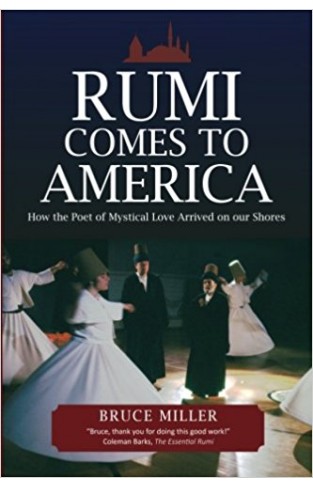
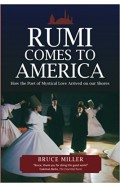
-120x187.jpg?q6)









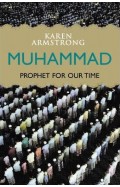

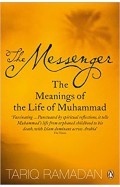
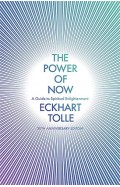

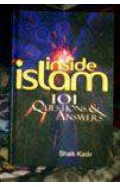

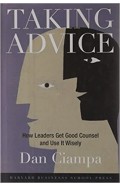




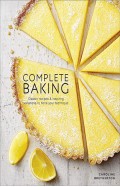
-120x187.jpg?q6)
